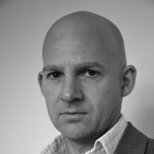Taking Liberties: Why postliberals are wrong about personal freedom
SUGGESTED



Summary
- Postliberalism has emerged as an influential ideology, especially on the political right. Its leading figures include Patrick Deneen and Adrian Vermeule in the U.S. and Philip Blond and Nick Timothy in the U.K.
- Postliberals claim that liberalism has caused the woes of the contemporary West. They use ‘liberalism’ to cover both classical liberals and liberals in the modern American sense: that is, left-wing progressives. Postliberals reject the liberal tenet that the state should be neutral about the nature of the good life. Instead, it should use its powers to promote a Christian and communitarian conception of the good life.
- Postliberals fail to make their case that liberalism has harmed Western populations because they do not take proper account of the gains due to liberalism. And much of what they lament is caused not by individual liberty but by the growth of the state since WWI.
- Postliberals claim, however, that the individualism of classical liberalism inevitably leads to the growth of the state. Alas, they mistake individualism for the view that the state should remove all impediments to the satisfaction of individuals’ desires when, in fact, it is the view that individuals should make decisions for themselves. They are wrong to conflate classical liberalism and progressivism.
- They are also wrong to recommend that politicians promote a particular conception of the good life. No one is clever enough to know how strangers should live better than those strangers do themselves. And no one is virtuous enough to be trusted with the power to make others live as he sees fit.
Fullscreen Mode




